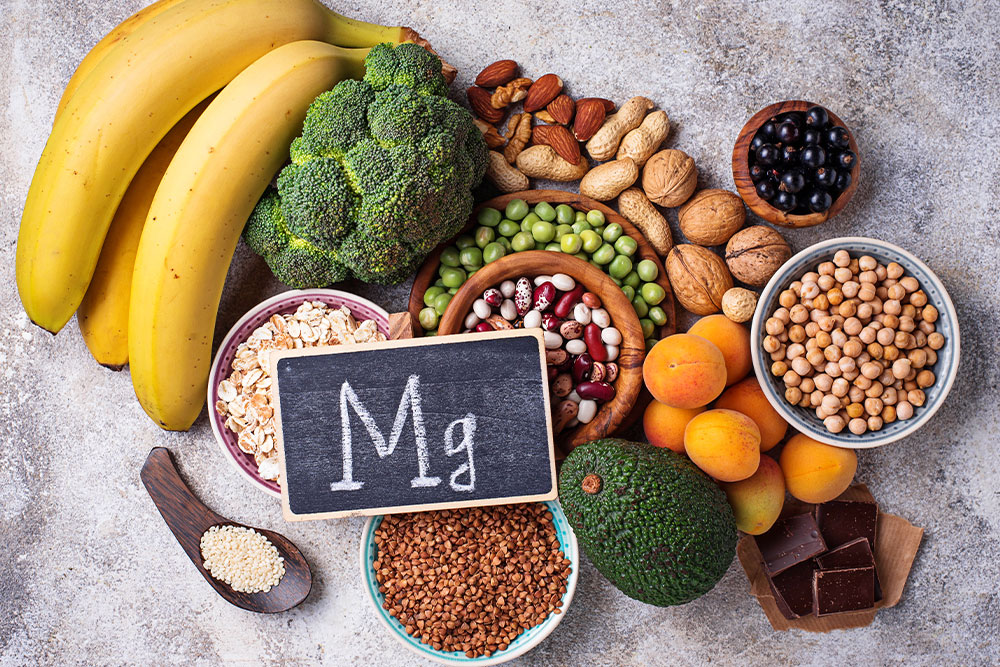When it comes to the body’s requirement of many minerals for optimum functioning, magnesium is one of the most important ones. This mineral is extremely beneficial for your health in more ways than one as it ensures proper functioning of the body by maintaining its energy levels. However, there are times when your body doesn’t produce this mineral enough, and you get it externally via your diet, such as legumes, leafy greens, nuts and seeds. Supplements are a great addition too, especially if you have dietary restrictions. So, what’s the deal with magnesium supplements? Here’s what we’ve got for you.

First up, let’s understand what the supplements contain. According to Dr Eileen Canday, head dietician and department head, Nutrition and Dietetics, Sir HN Reliance Foundation Hospital, Mumbai explains, “Magnesium supplements are compound form of this element, which are most commonly found as Magnesium Citrate, Magnesium Orotate, Magnesium Aspartate, and Magnesium Chloride.“ Further, she adds that including magnesium supplements to your diet helps with regulating your energy levels, aids with protein formation, creates and repairs your DNA and RNA, relaxes your muscles, and also regulates neurotransmitters throughout the brain and nervous system.
When your body is low on magnesium, there are certain signs that one must look out for. They are: poor appetite, nausea or vomiting, sleepiness, or even weakness. If left untreated over time, they can lead to more health problems such a muscle spasms or tremors, intense headaches, and weaken your bones. One of the biggest reasons your body may not be producing enough magnesium can be due to alcoholism, kidney problems, or if you have celiac disease. This is where supplements can help you get your daily dose.

Benefits
Magnesium supplements, when included as part of your diet, have the following benefits:
• Help in elevating mood: Studies have shown that it can improve depressive symptoms, due to the fact that they help the body with energy production.
• Regulate blood pressure: It is observed that systolic blood pressure reduces with regular magnesium intake.
• Help in prevention of migraines: Migraine frequencies have observed to be reduced by the consumption of magnesium supplements.
• Prevention of insulin resistance: Helps improve the efficiency of insulin response to blood sugar levels, which in turn improves metabolism.
• Reduce inflammation in the body: Magnesium supplements help reduce hs-CRP levels. This test detects decreased levels of C-reactive protein in the blood (CRP). This protein assesses your body's overall levels of inflammation. The hs-CRP can be used to determine whether or not a person is at risk for heart disease or stroke.
• Reduce the risk of osteoporosis: Magnesium contributes to increased bone density and helps prevent the onset of osteoporosis.
It’s recommended that men get 400–420 mg and women 320–360 mg per day of magnesium, respectively and depending on age. Generally supplements available are within the range of 200-400 mg. Any amount more than this can be toxic and disrupt the absorption process of magnesium in the body.

Drawbacks
There’s no denying that this is a natural nutrient and even external sources can help boost the amounts of magnesium, one cannot rule out allergic reactions or other side effects. “Though magnesium supplements are generally well tolerated, they should be taken with caution by people who take certain diuretics, heart medications or antibiotics as it can cause interference with their functions and lead to further health complications,” explains Dr Canday.
In case, your body is not producing enough magnesium, the doctor may call for a blood test to determine your levels and chart out your dosage. While magnesium supplements can be consumed by anyone, special care should be taken by those on medications for heart ailments, and diabetes. It is always recommended to reach out to a qualified health expert for the correct prescription of these supplements.